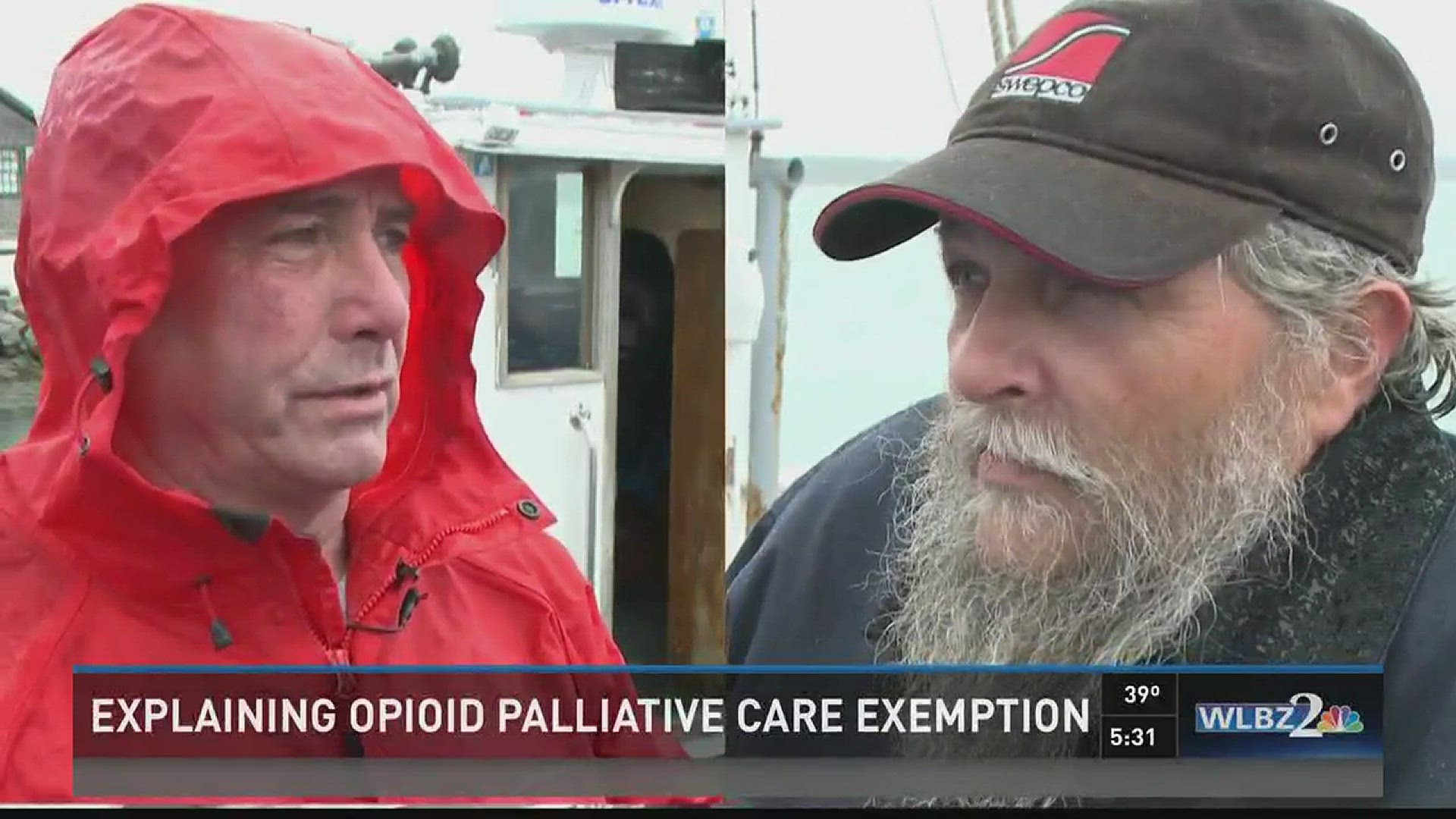AUGUSTA, Maine (NEWS CENTER) — Two Midcoast men taking steps to sue the state over its rules capping daily doses of opioid painkillers say they are being forced to taper down their drugs and they want exceptions in state law that will allow them to stay on a higher dose.
The men claim that by being forced to taper down their doses to no more than 100 morphine milligram equivalents (MME) daily by July, they are in too much pain to adequately run their businesses.
Brian Rockett is a lobster buyer and Eric Wass owns a roofing business.
The state Department of Health and Human Services (DHHS) would not respond to these men's specific cases but did say there are exemptions in the law for people in palliative care, in conjunction with a serious illness.
Both men say they deal with chronic pain due to past injuries and degenerative disc disease. Would the palliative care exemption cover them? Under state law…
"'Palliative care' means patient-centered and family-focused medical care that optimizes quality of life by anticipating, preventing and treating suffering caused by a medical illness or a physical injury or condition that substantially affects a patient's quality of life, including, but not limited to, addressing physical, emotional, social and spiritual needs; facilitating patient autonomy and choice of care; providing access to information; discussing the patient's goals for treatment and treatment options, including, when appropriate, hospice care; and managing pain and symptoms comprehensively."
Chris Pezullo, the chief health officer for DHHS says each case is individual but it’s possible that someone with chronic pain could be exempt.
“If you got to the place where we’ve looked at the toolkit and you've tried behavioral therapy — and you've tried OT, PT, osteopathic or chiropractic manual therapy; aspirin, Motrin, Tylenol, gabapentin or other neurologic antiepileptics — if you have tried all of the things that are out there and the only thing that can and will work is opioids, then your provider can prescribe them. And the palliative care exemption allows the provider to do that,” Pezullo said.
Gordon Smith, an attorney and the executive vice president of the Maine Medical Association agrees that there could be cases where chronic pain could be covered by the palliative care exemption.
“I think it can cover just about anything as long as it's a serious medical illness or a serious condition that's not expected to resolve anytime soon and the elements of palliative care referred to pain," Smith said.
Attorney Patrick Mellor, who represents Rockett and Wass, is not so certain. He feels that unless chronic pain is specifically included in the definition of palliative care, the law may be too vague.
Mellor has filed a notice of claim on behalf of his clients to alert the state that they may sue. DHHS has yet to issue its final rulemaking. That should be out later this week.
DHHS says it cannot comment on what if any changes are made to the rules until it's released publicly on Friday.

